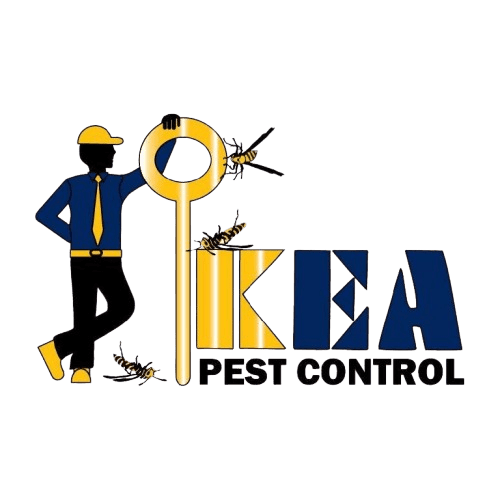Digger Bees and Ground Bees: What Connecticut Homeowners Need to Know

Posted on April 22nd 2025
Digger Bees and Ground Bees: What Connecticut Homeowners Need to Know
Introduction
If you’ve noticed bees flying low to the ground or emerging from small holes in your yard, you’re likely seeing digger bees or other types of ground-nesting bees. These solitary pollinators may look alarming but play a vital role in your local ecosystem. This blog breaks down everything you need to know, including how to identify them, what attracts them to your property, and whether you need to take action.
What Are Digger Bees and Ground Bees?
- Digger bees are a type of solitary ground-nesting bee. Unlike honeybees or wasps, they don’t form large colonies or hives.
- Common species include:
Anthophora (a common digger bee genus)
Mining bees (Andrena spp.)
Sweat bees (Halictidae family) - They're active during spring and early summer, often for just a few weeks.
- Most are harmless and non-aggressive.
What Do They Eat?
- Nectar and pollen from flowering plants.
- Popular food sources include:
Dandelions
Clover
Wildflowers
Fruit blossoms - They are excellent pollinators for native plants and crops.
Where Do They Nest? Soil Preferences
Digger and ground bees prefer:
- Well-drained, sandy or loose soil
- Sunny, bare patches of ground (lawns, garden edges, and dry slopes)
- Lawns with thin grass or sparse vegetation
- South-facing slopes or raised areas with minimal foot traffic
They dig small tunnels into the soil, with a mound of earth often visible near the entrance.
Are Digger Bees Aggressive?
No.
- Digger bees and ground bees are not aggressive.
- Only females have stingers, and they rarely sting unless directly threatened or handled.
- They do not defend nests the way social bees (like honeybees or yellow jackets) do.
not all underground bees are friendly — like yellow jackets .
Prevention and Control: How to Deter Ground Bees Naturally
If digger bees are nesting in high-traffic areas or become a concern, consider these methods:
1. Water the Area Frequently
- Ground bees dislike moist soil. Watering your lawn regularly can encourage them to move on.
2. Thicken Your Lawn
- Overseed to create a dense turf.
- They avoid areas with lush vegetation or thick grass roots.
3. Mulch or Cover Bare Soil
- Cover exposed soil with mulch, gravel, or ground cover plants to discourage nesting.
4. Limit Access to Preferred Nesting Areas
- Install landscape fabric or stone around raised beds and sunny patches.
5. Avoid Pesticides When Possible
- Since ground bees are beneficial pollinators, avoid harsh chemicals unless absolutely necessary.
- For sensitive environments, consider FIFRA 25(b) exempt products — learn more here
- minimum risk" pesticides, also known as FIFRA 25(b) products.
If a serious infestation or sting risk exists near children or pets, professional evaluation by KEA PEST CONTROL is recommended.
FAQ: Digger Bees & Ground Bees in Connecticut
Q: What’s the difference between digger bees and ground bees?
A: “Ground bee” is a broad term for solitary bees that nest in the soil. Digger bees are one type. Mining bees, sweat bees, and others fall under this category.
Q: How long do ground bees stay active?
A: Most are active for just a few weeks in spring or early summer while females lay eggs and gather food.
Q: Are ground bees damaging to my lawn?
A: Their tunnels are minimal and usually don’t harm the lawn. In fact, they help aerate the soil.
Q: How can I tell if I have ground bees or yellow jackets?
A: Yellow jackets are aggressive, form large colonies, and reuse underground nests. Ground bees are solitary, gentle, and don’t return to the same site next year.
Q: Will they come back next year?
A: Possibly — if soil conditions remain ideal. Improving lawn health and reducing bare patches can prevent repeat nesting.
Final Thoughts
While digger bees and ground bees may look intimidating, they’re a sign of a healthy yard. Unless they pose a direct risk, consider leaving them undisturbed — they’re pollinators doing important work. If you need help identifying or safely deterring them, KEA PEST CONTROL offers environmentally conscious options to suit every home.
Need fast pest control service? Get a free inspection here.
📞 Contact us today for a professional evaluation or to learn more about our pollinator-friendly pest control options.
Related Connecticut Pest Control Services
- Rodent Control
https://keapestcontrol.com/services/pest-control/rodent-control-150478216 - Ant Control
https://keapestcontrol.com/services/pest-control/ant-control-150478218 - Stinging Insect Control
https://keapestcontrol.com/services/pest-control/stinging-insect-control-150529283 - General Pest Control
https://keapestcontrol.com/services/pest-control-service/general-pest-control-east-granby-ct-150599331 - Pest Prevention Programs
https://keapestcontrol.com/services/pest-control-service/pest-prevention-east-granby-ct-150599398
Contact Us
Have Questions? We’re Here to Help!
If you need more information about our services or have specific pest concerns, we’re just a click away. Contact us today with any questions or to learn how KEA Pest Control can help keep your home or business pest-free!

